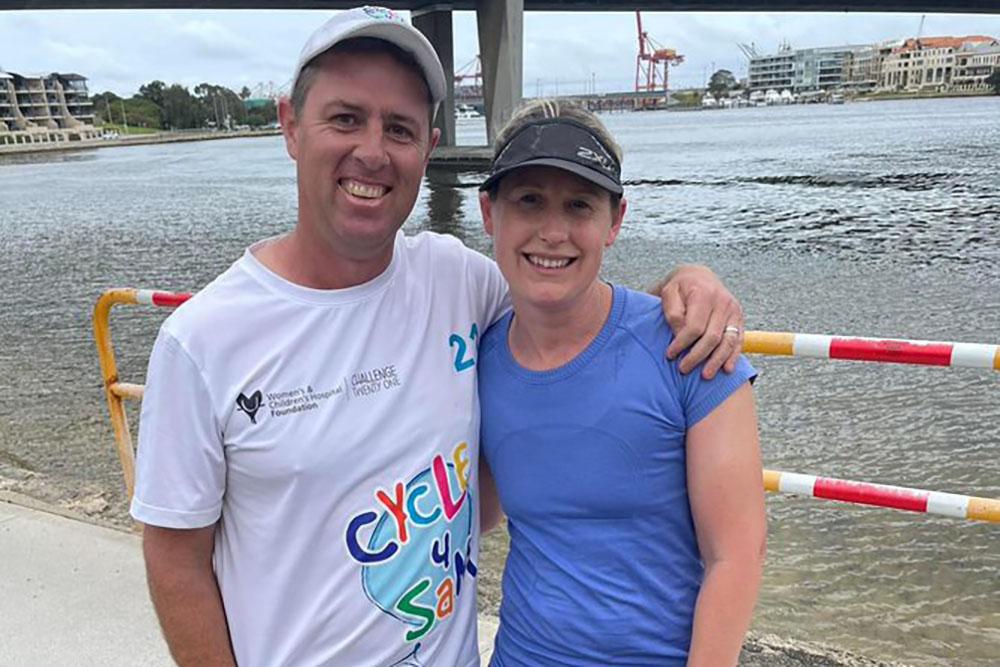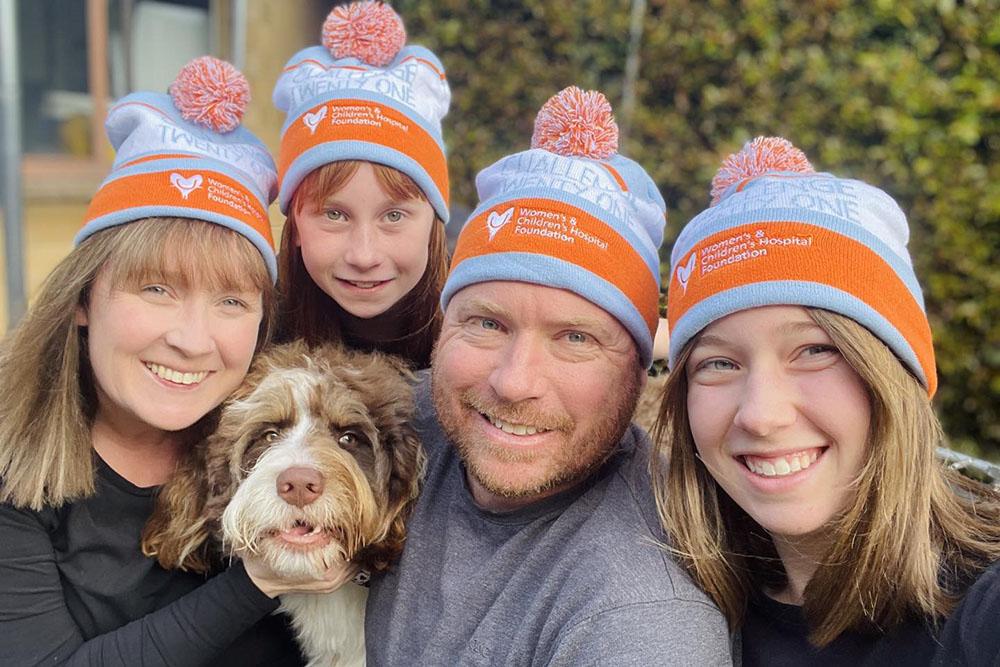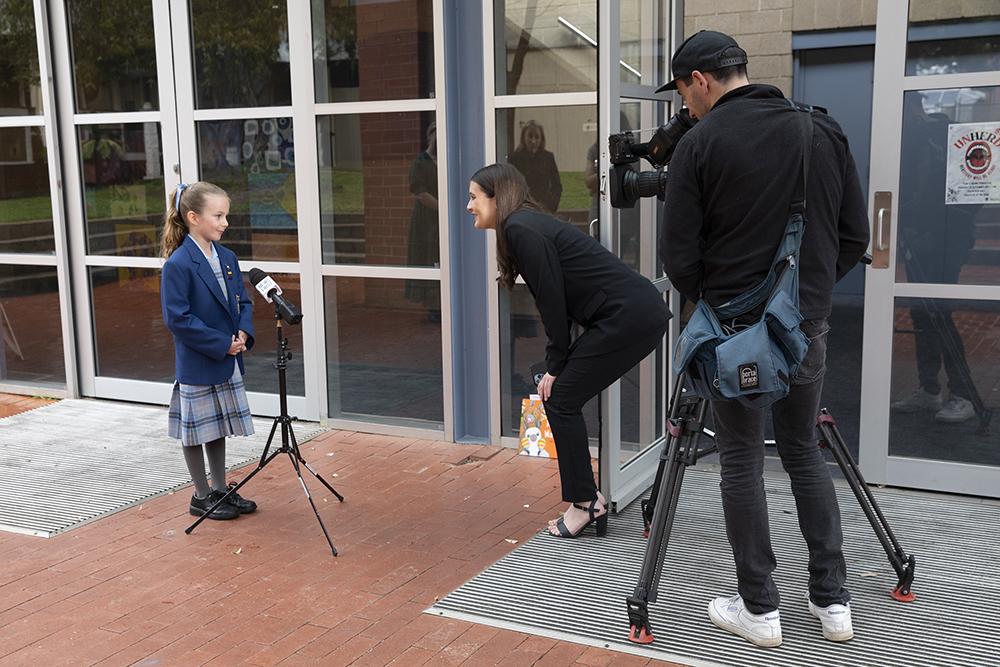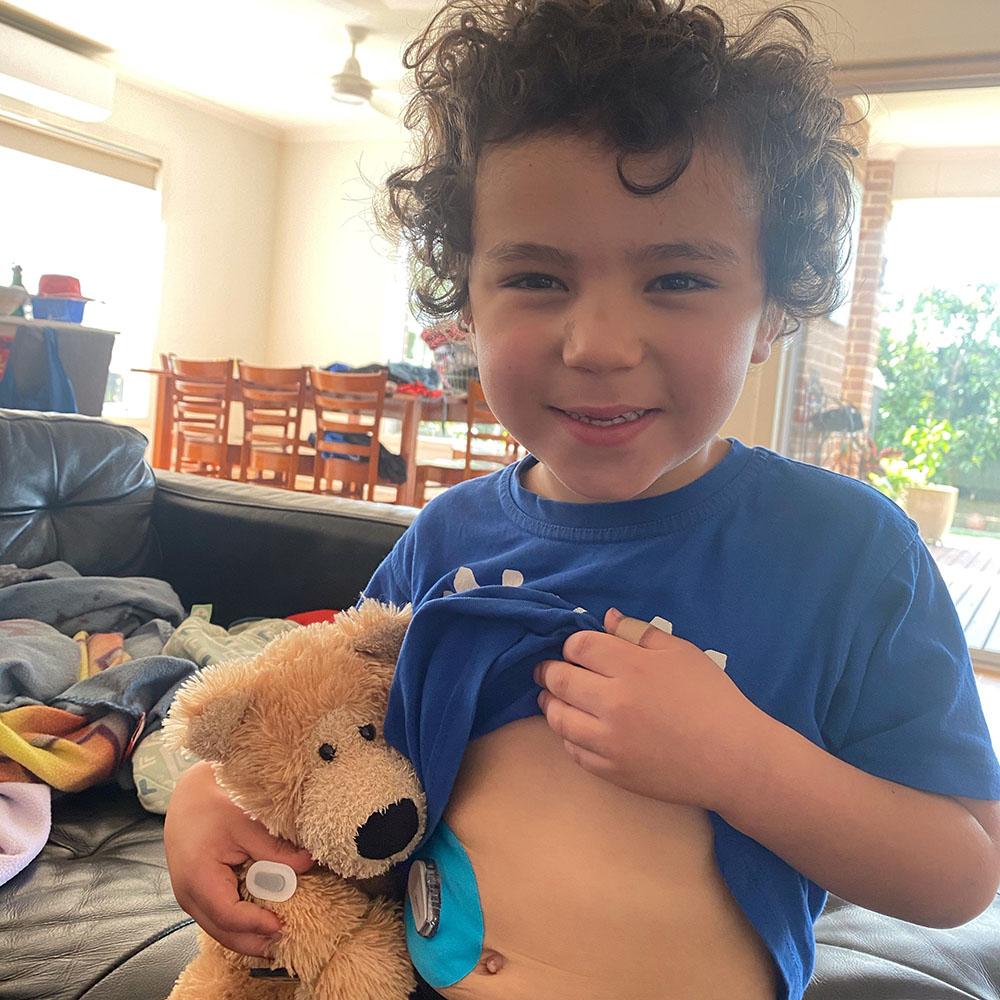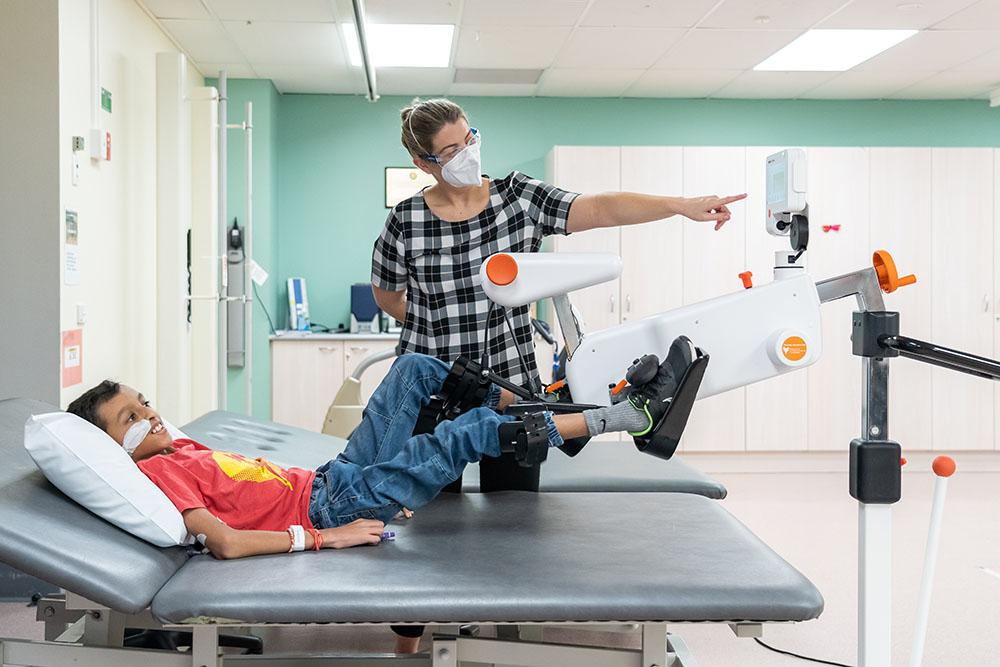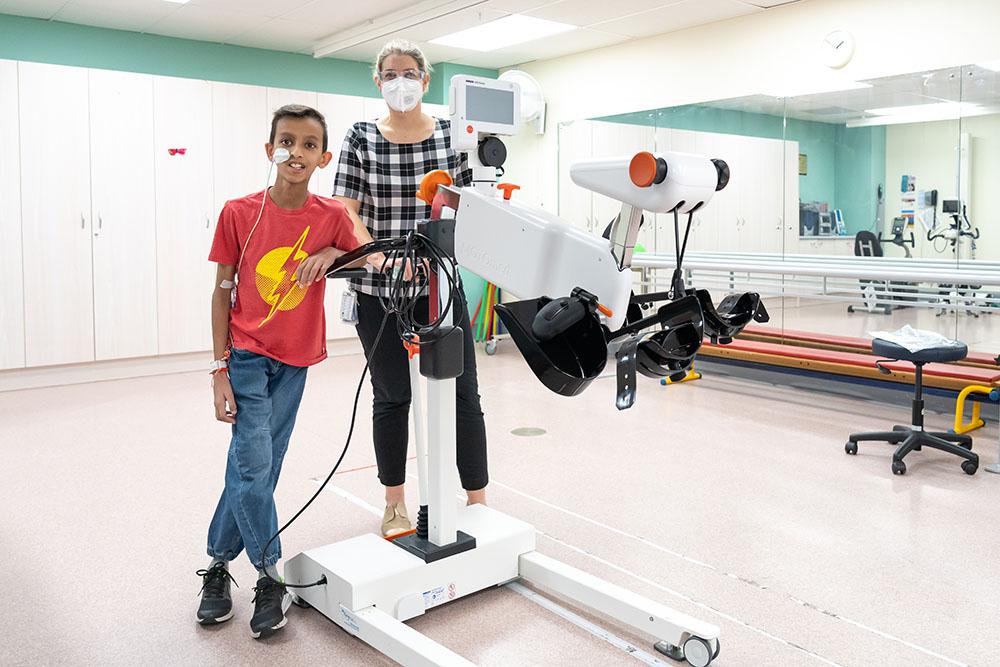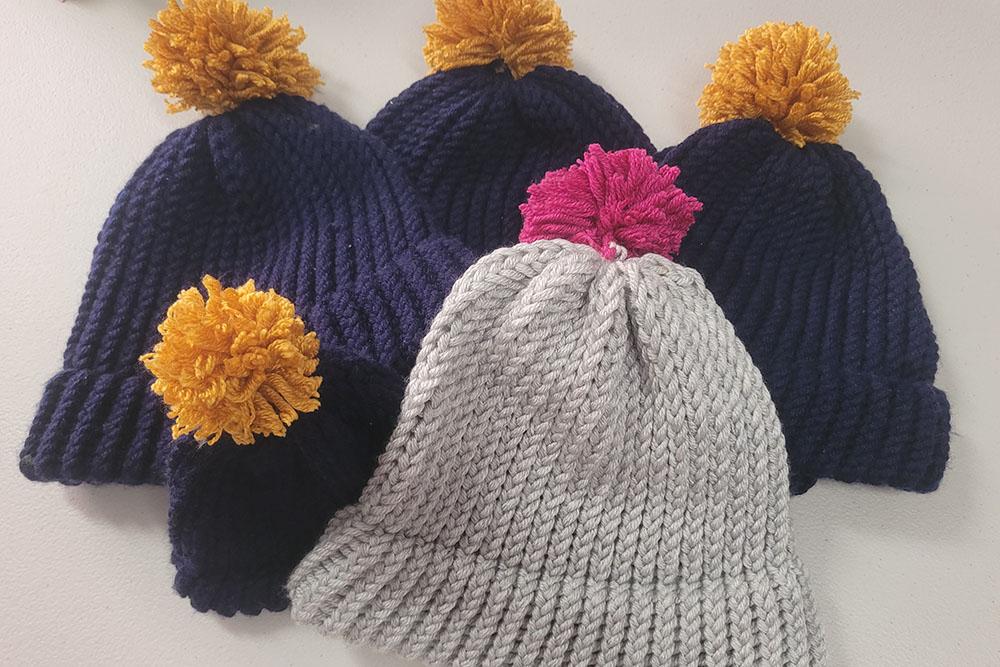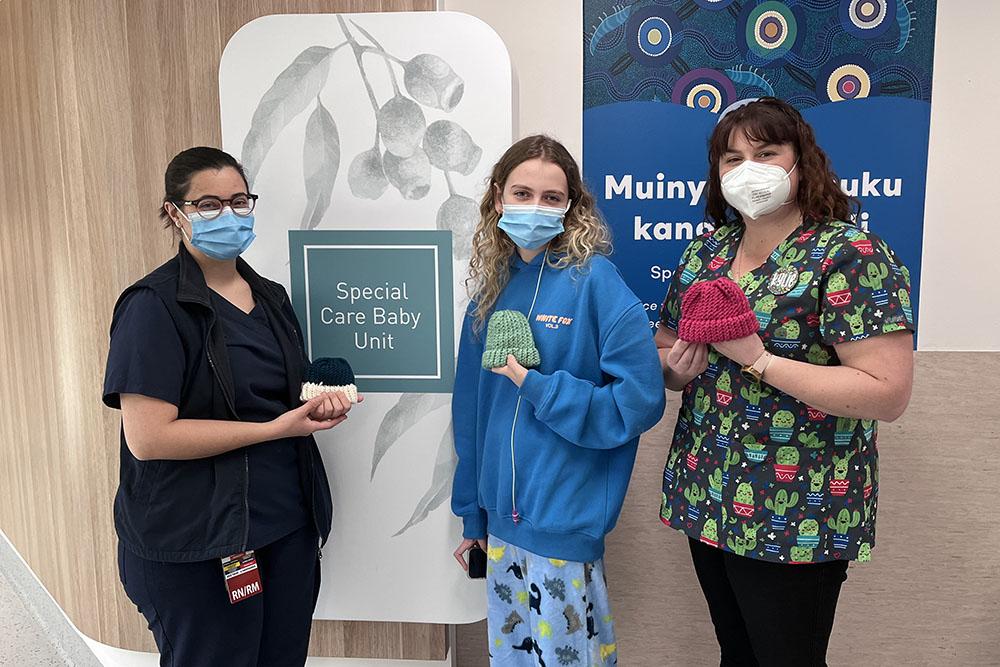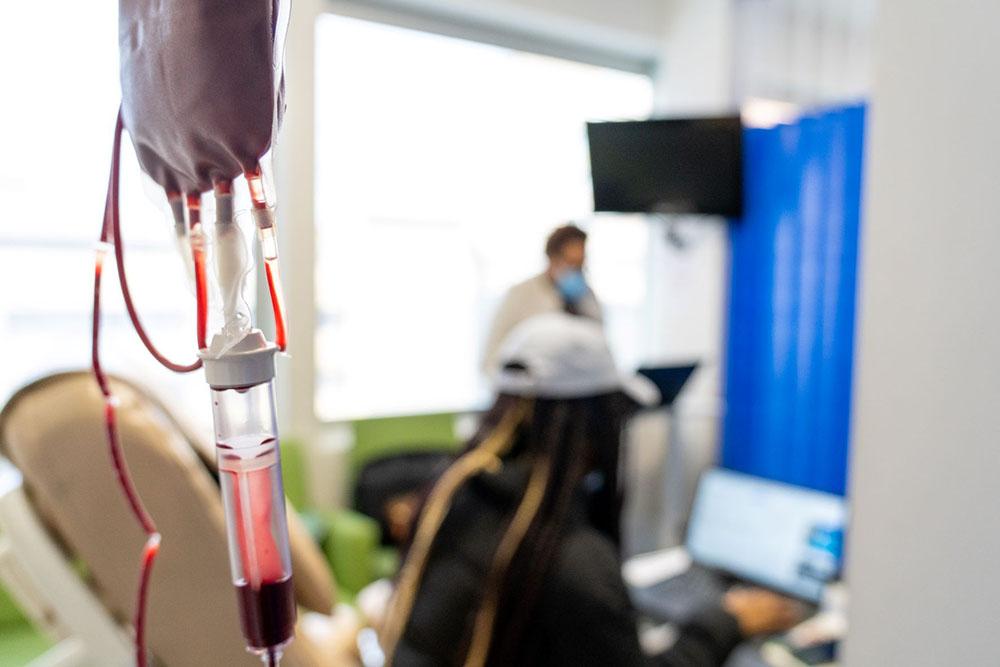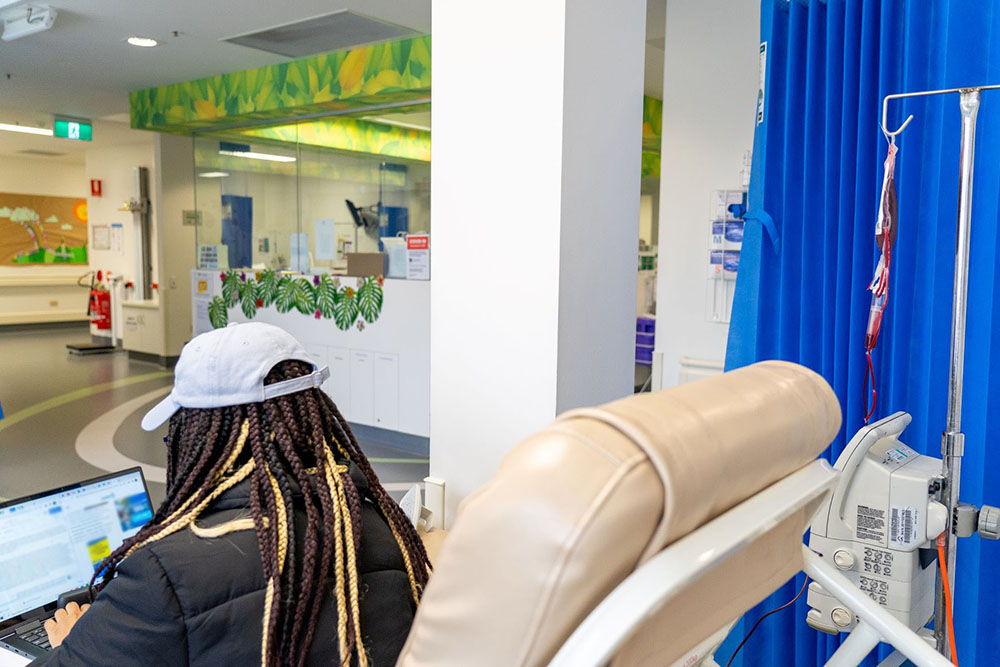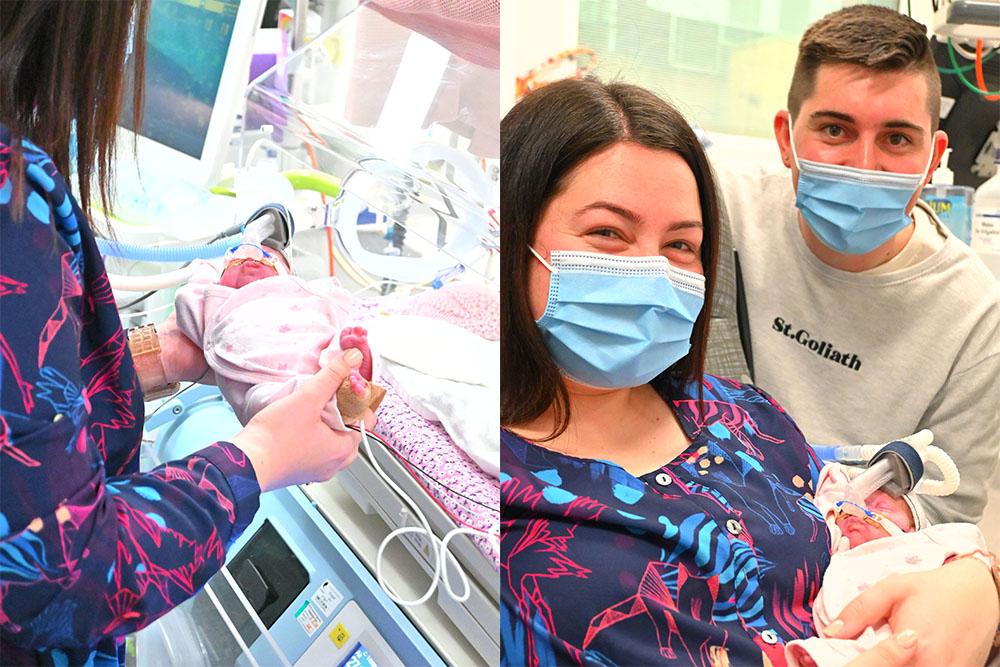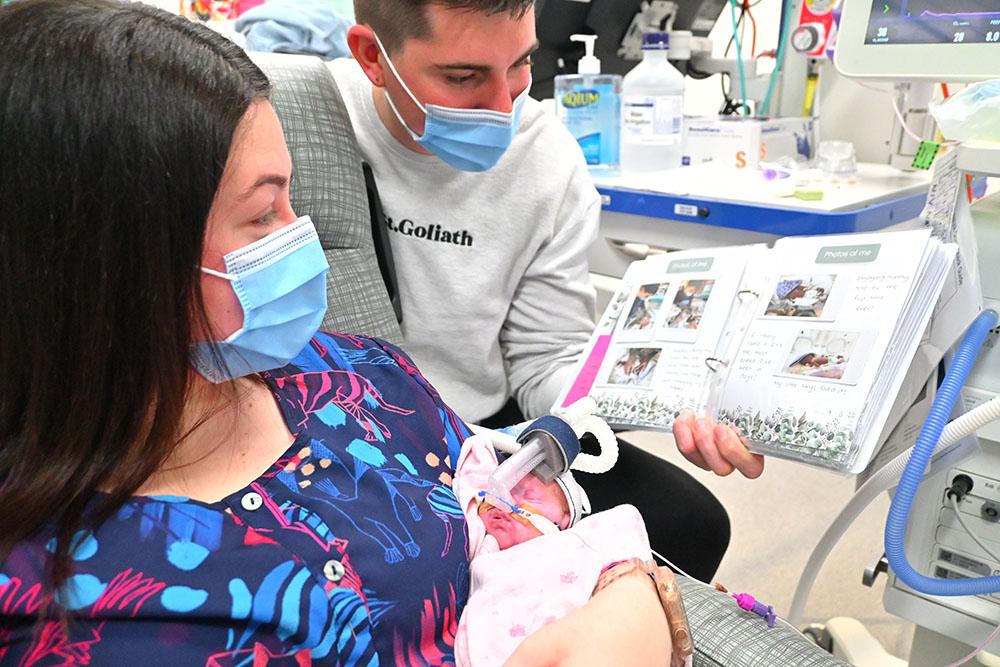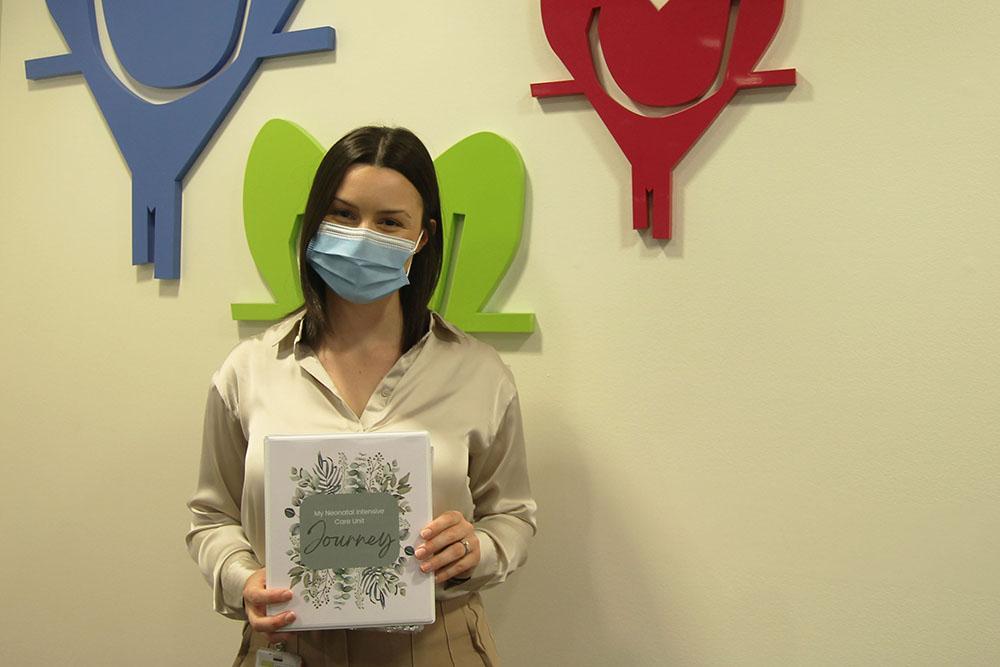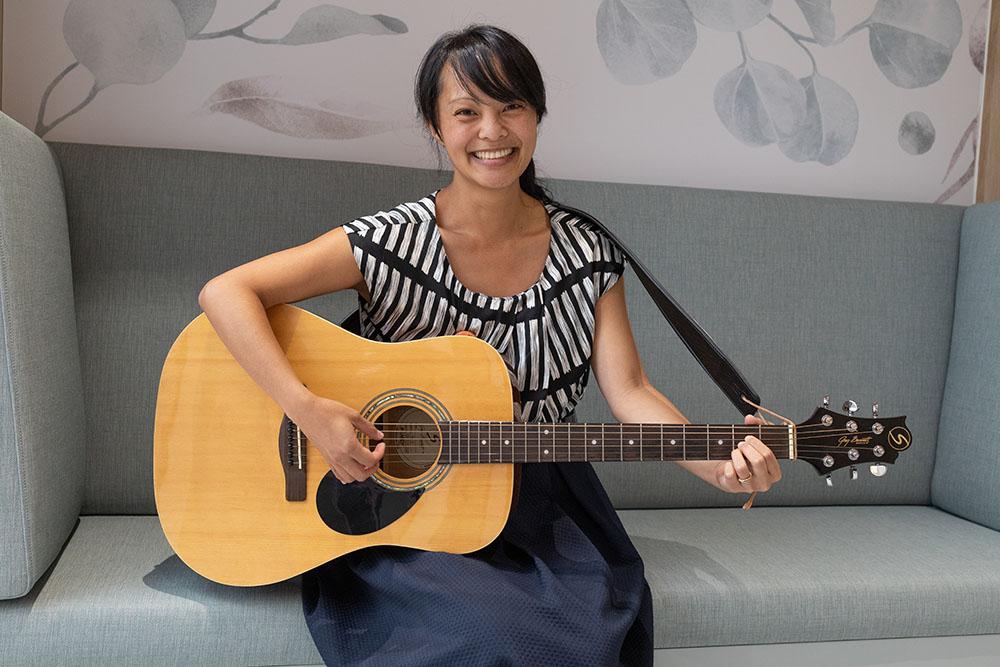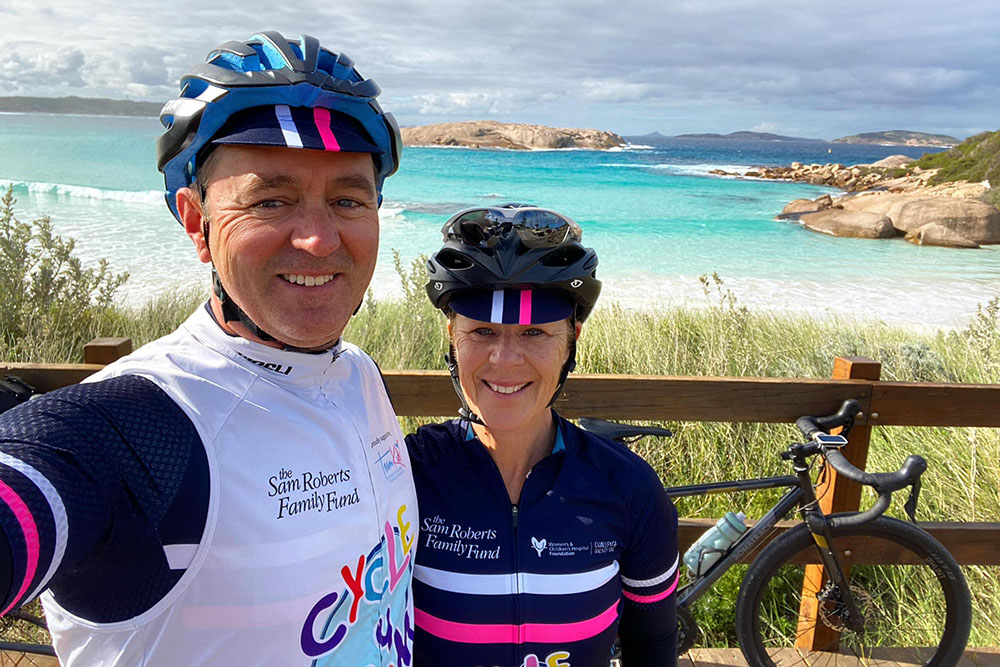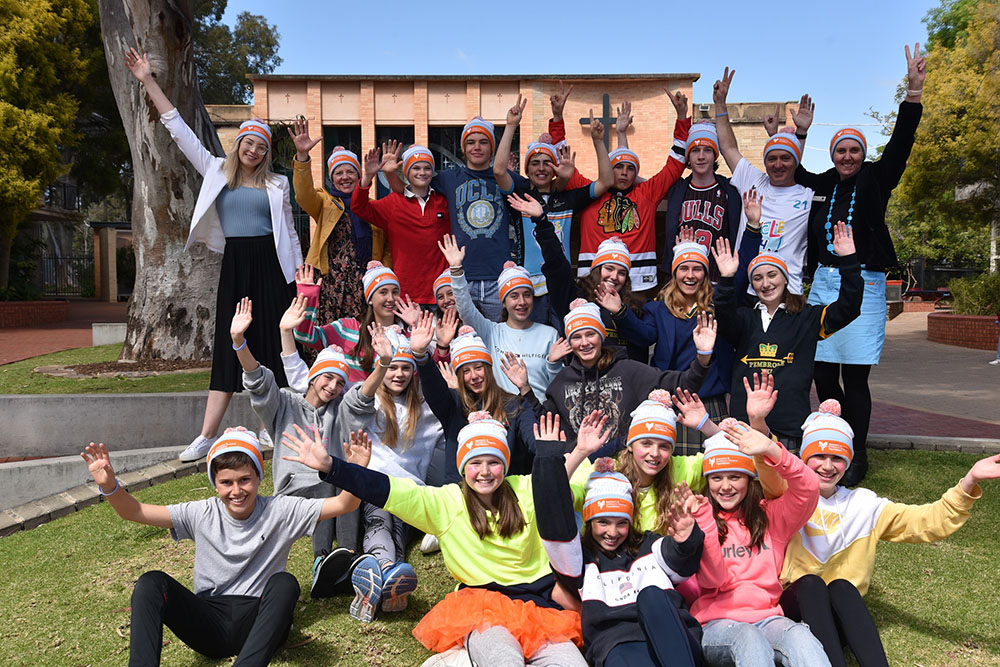Once upon a time at the Women’s and Children’s Hospital (WCH) we celebrated World Prematurity Day with our Twilight Storytime!
Staff and volunteers brought in their favourite children’s books to read to families in the Neonatal Intensive Care Unit (NICU) and Special Care Baby Unit (SCBU) to help parents develop quality relationships with their babies through reading aloud. Some favourites included We’re Going on a Bear Hunt by Michael Rosen and The Very Hungry Caterpillar by Eric Carle.
Parents were also given time to privately read to their baby with a gift pack of new books provided by our Arts in Health program while our wonderful harpist, Ilona, played music in the background.
The event, which was a collaboration between the WCH Neonatal Nurseries Developmental Care Group and our Arts in Health program, encouraged parents to feel comfortable reading aloud in the busy Hospital space to foster attachment and bonding with their babies.
Nikki’s twins Raffaele and Amalia were born at just 24 weeks and have spent over 100 days in the Hospital. The trio listened to Chocolate Mousse for Greedy Goose by Julia Donaldson as they enjoyed some cuddles.
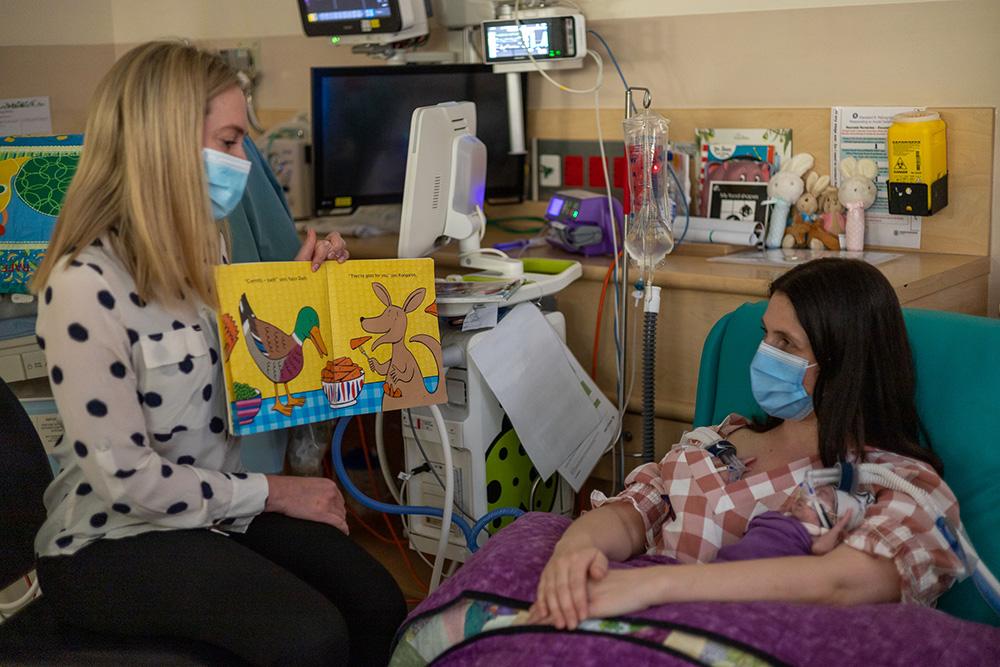
Nikki and her new twins, Raffaele and Amalia, being read to in NICU.
Preterm and critically ill newborns requiring admission to intensive care units face a higher risk of neurodevelopmental, behavioural and learning problems. Reading to newborns in the hospital can help their cognitive development, as well as have a positive impact on parents’ behaviours and attitudes.
Meg Bater, Consultant Nurse Neonatal Growth and Development Program, says, “Research tells us that parents reading, talking and singing to their baby helps with their child’s speech, writing and reading skills later in life.”
“Music and reading have a special role during a baby’s hospital stay. They can help soothe and comfort babies during a very busy time in brain development and in a very busy environment.”
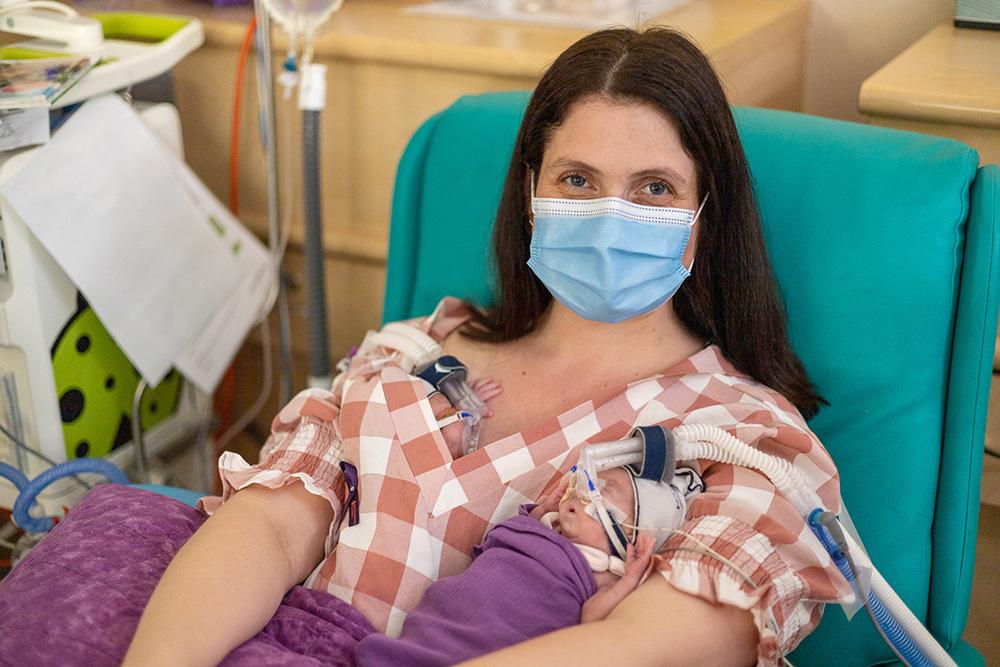
Nikki and her tiny babies Raffaele and Amalia.

